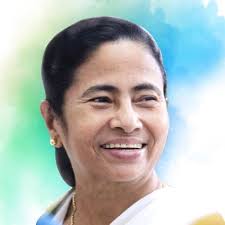In the vibrant tapestry of Indian democracy, leaders play a pivotal role in shaping the narrative of the nation. Mamata Banerjee, the Chief Minister of West Bengal, has emerged as a prominent voice advocating for democratic ideals of equality and fraternity. In a time marked by social and political complexities, her impassioned call to uphold these values echoes not only in West Bengal but resonates across the entire nation. This article delves into Mamata Banerjee’s vision and commitment to preserving the essence of democracy, emphasising the principles of equality and fraternity.
The Foundation of Democracy: Equality and Fraternity
Democracy, as envisioned by the framers of the Indian Constitution, stands on the pillars of equality and fraternity. It is not merely a political system but a way of life where every citizen is equal before the law and enjoys the same fundamental rights. Fraternity, the feeling of brotherhood and solidarity among citizens, forms the social fabric that binds a diverse nation like India. Mamata Banerjee’s emphasis on these principles highlights her unwavering dedication to preserving the essence of democracy.
Inclusivity and Empowerment
Mamata Banerjee’s political journey has been marked by her emphasis on inclusivity and empowerment. By championing policies that uplift marginalized communities, provide educational opportunities and ensure healthcare access, she embodies the spirit of equality. Her administration’s efforts to bridge social and economic gaps reflect a commitment to ensuring that every citizen, regardless of their background, has the opportunity to thrive and contribute to the nation’s progress.
Social Justice and Communal Harmony
Under Mamata Banerjee’s leadership, West Bengal has become a symbol of communal harmony and social justice. By fostering an environment where diverse communities coexist peacefully, she exemplifies the true meaning of fraternity. Her emphasis on mutual respect, understanding and dialogue creates a society where citizens stand together, transcending barriers of caste, creed and religion.
Political Pluralism and Democratic Values
Mamata Banerjee’s advocacy for political pluralism and democratic values is evident in her encouragement of open debate, diverse opinions and freedom of expression. In a democracy, the ability to voice dissenting opinions and engage in constructive dialogue is crucial. By promoting these democratic principles, Mamata Banerjee fosters an environment where ideas flourish and the nation benefits from the collective wisdom of its people.
A Call for Unity and Collaboration
In a world often divided by differences, Mamata Banerjee’s call for upholding democratic ideals of equality and fraternity serves as a unifying force. Her message transcends political lines, urging citizens and leaders alike to work together for the greater good. By embracing diversity and celebrating unity in purpose, Mamata Banerjee’s vision becomes a guiding light, illuminating the path towards a stronger, more harmonious India.
Conclusion: A Beacon of Hope
Mamata Banerjee’s impassioned plea to uphold democratic ideals of equality and fraternity resonates deeply in the hearts of citizens across the nation. In her vision, India stands united, celebrating its diversity and embracing its shared humanity. As citizens, it is our collective responsibility to heed this call, preserving the core values that define our democracy. In Mamata Banerjee’s words and actions, we find a beacon of hope, guiding us towards a future where equality and fraternity are not just ideals but the very foundation upon which our nation stands tall.



